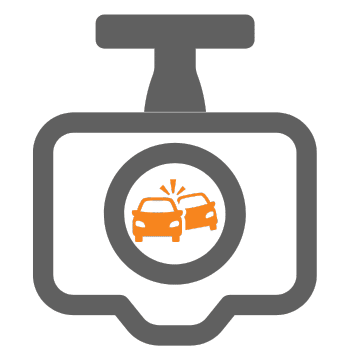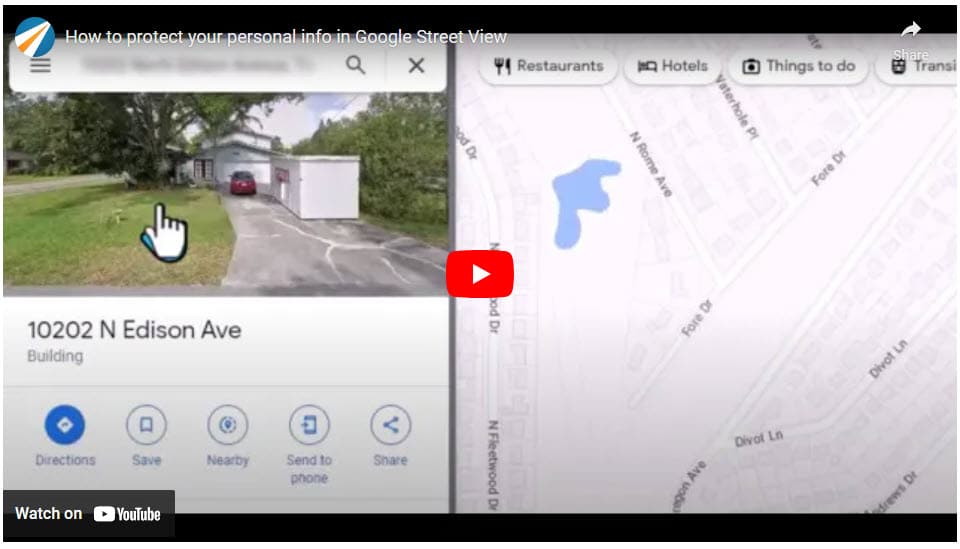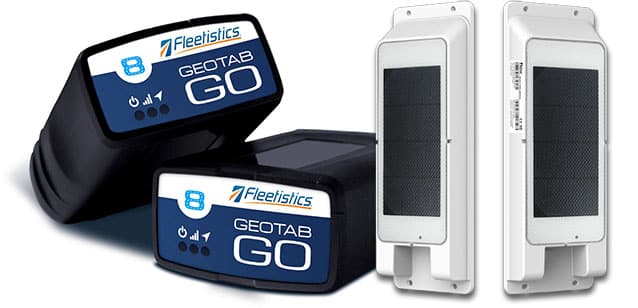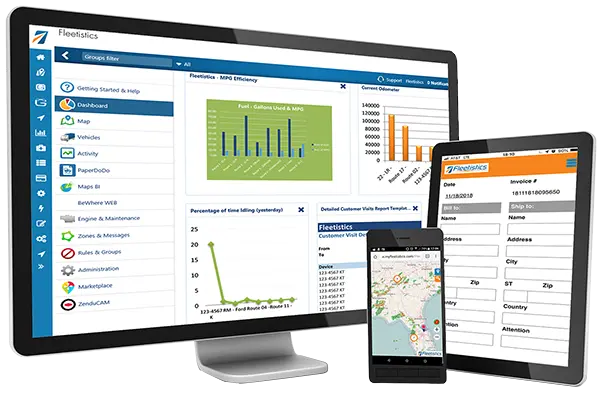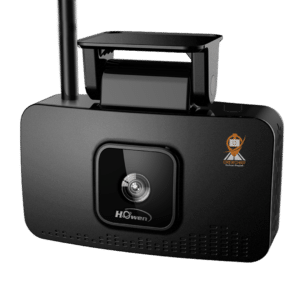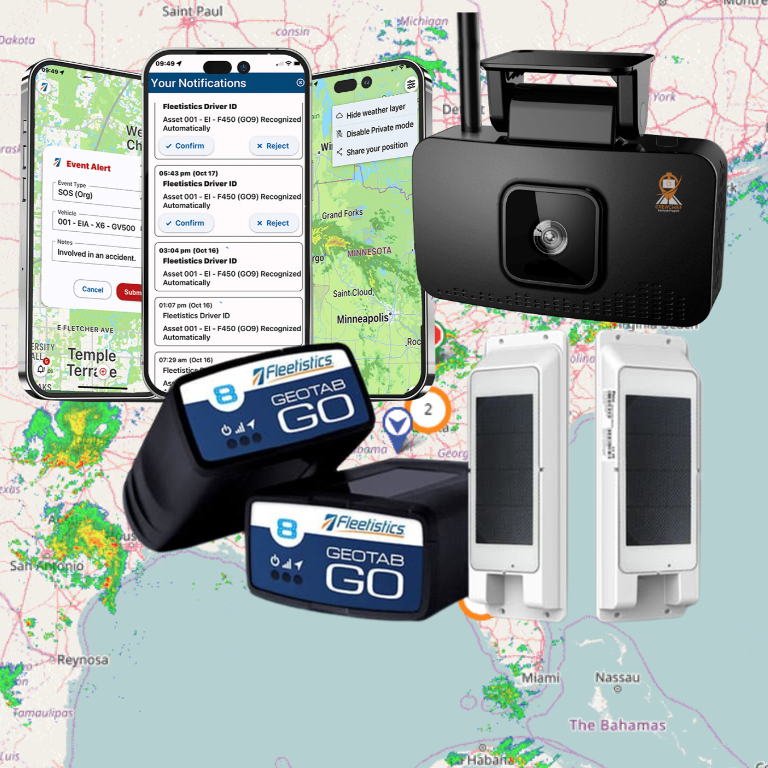Protecting Your Privacy – Dash Cams
The subject of protecting your privacy came up recently when we were advised of some inconsistency in how insurance companies feel about in-cab facing vehicle camera data. In the past it was encouraged to have in cab facing cameras to document driver behavior. For instance, if a driver was accused of using their cell phone, the camera data would confirm or disprove that, avoiding lengthy and costly litigation.
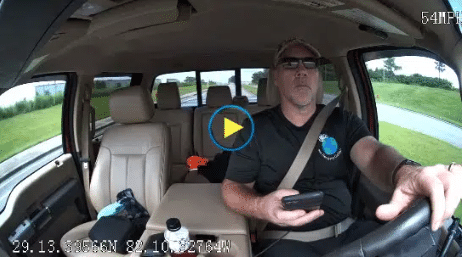
Some insurance companies are now saying that as a matter of protecting your privacy and the privacy of your drivers, they want clients to have only forward facing cameras. They say simply disabling the interior facing camera on a dual camera system can be construed as having something to hide, so they are asking clients to replace dashcams capable of an interior view.
Contact Fleetistics for Dash Cams 855-300-0527
Government and Industry Perspectives
As early as 2014, an article on Truckers Report was posted saying, “The California Attorney General has stated that the use of driver-facing in cab cameras does not violate any state codes, and may be used to take disciplinary action against drivers.” There are a few factors stipulating when and how the video may be used, but the decision makes it clear that in California, at least a driver-facing camera is not considered an invasion of privacy.
Trucking Truth, another respected industry website has a great post that lists Trucking companies that do and don’t use driver facing cameras. Their post is designed to help drivers understand why these companies have in cab facing cameras, and have a list they can reference when seeking work, so they know what to expect.
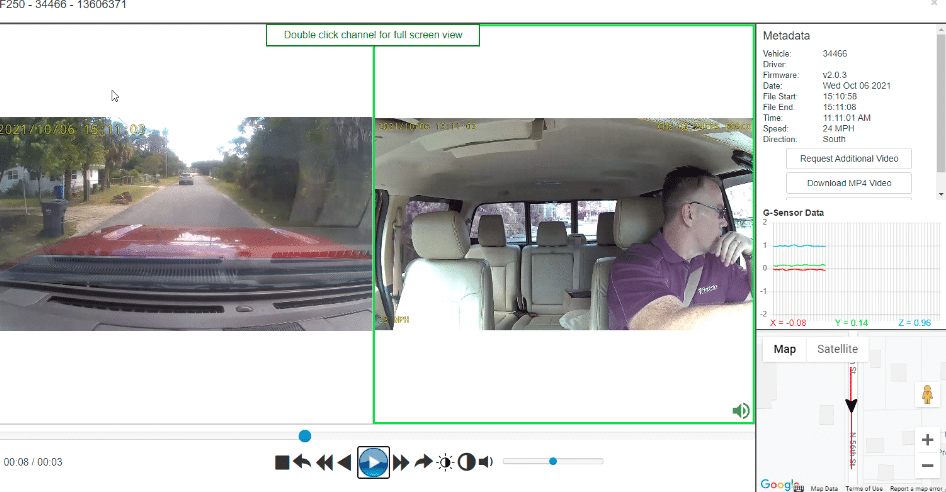
Company Policy
We have long held that a company policy needs to be in place to disclose that cameras are in place and how the video data will be used. A quick Google search brought up a couple of well-crafted video policy documents you may want to mirror to create your own policy document for employees to sign off on.
442.17 In-Car Camera Policy | Saint Paul Minnesota (stpaul.gov)
Protecting Your Privacy – Surveillance Cameras
While arguments both for and against in cab video can be easily made, it got us thinking about privacy in general and all the cameras out there recording our lives. Cameras at intersections are recording us as we drive. Cameras on people’s homes are recording us as we walk our dogs. Cameras in retail stores are recording our shopping habits, and the list goes on.
Protecting your privacy considering all the other cameras out there may not be as easy. Â Consider Google Street View. For years, Google has been capturing images street by street business by business to enhance street view. In some locations you can navigate the images and virtually enter the place of business and look around.
If your car is parked in your driveway when Google captures the image, your license plate number may be in plain view. If your children are playing in the yard, their faces are now public information. And if burglars have targeted your property, they can look in street view for the location of security cameras on your home and plan their safest point of entry.
Thankfully, Google provides a way for you to request that information be blurred in their images. Here is a quick how-to video to get you started protecting your privacy in Google Street View.
Summing it Up
Protecting your privacy is an ever-evolving process. We all need to be mindful that we are almost always being observed when we are out and about, and take the steps that we can to mitigate any negative impact.


